Table Of Contents
- Best FOREX Brokers in the UK for 2026
- Top Tips for Selecting the Best FOREX Brokers in UK
- Top FOREX Broker in UK- Complete List
- What is FOREX and Why Do We Need a Broker to Trade?
- How Do I Choose the Best FOREX Broker in the UK?
- Regulation and Licensing in the UK
- Leverage
- Stop Out and Margin
- Commissions and Fees
- Tradable Assets and Instruments
- Payments, Deposits, and Withdrawals in the UK
- FOREX Trading Customer Service
- Technical Aspects of the Broker’s Website
- Trading Platforms, Tools, and Features
- Ask Other Traders on Our Network
- FOREX Trading Scams and How to Avoid Them
- Will Your Money Be Protected if Your Broker Becomes Insolvent?
- The Dos and Don’ts of FOREX Brokers
- Which FOREX Broker Has the Best Platform?
- Which is the Best FOREX Broker for Lowest Fees and Spreads?
- Which is the Best FOREX Broker for the Most CFDs?
- Which FOREX Broker Offers the Most Assets?
- Which FOREX Broker is Best for Professionals?
- What Is Arincen and What Do We Do?
- Arincen’s Review Methodology
- Conclusion
Best FOREX Brokers in the UK for 2026
With many years of meticulous FOREX broker testing, Arincen stands out as a voice of authority. Our analyses, shaped by exhaustive data collection, are trusted by many. Each year, we gather 120 data points from more than 100 brokers. Our team of more than 20 people collaborate extensively to produce high-quality broker reviews like this one. For a detailed explanation of how we test brokers, navigate to the bottom of this article.
Note: We earn money by selling ads, placements, or through partnerships with some companies we have agreements with, learn more.
Best FOREX Brokers in the UK for 2026
| Company Name | Regulations | Minimum Deposit | Main Branch | |
|---|---|---|---|---|

ICM capital |
FCA | $200 | London | |
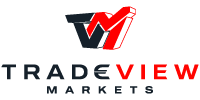
Tradeview |
SCA | $0 | New York, United States of America | |

XTB |
FCA | 0$ | United Kingdom | |

IG Group |
FCA | $250 | United Kingdom |

| Company Name | ICM capital |
| Regulations | FCA |
| Minimum Deposit | $200 |
| Main Branch | London |

| Company Name | Tradeview |
| Regulations | SCA |
| Minimum Deposit | $0 |
| Main Branch | New York, United States of America |

| Company Name | XTB |
| Regulations | FCA |
| Minimum Deposit | 0$ |
| Main Branch | United Kingdom |

| Company Name | IG Group |
| Regulations | FCA |
| Minimum Deposit | $250 |
| Main Branch | United Kingdom |
Top Tips for Selecting the Best FOREX Brokers in UK
Top FOREX Broker in UK- Complete List

ICM capital
ICM Capital is a UK-origin broker that operates worldwide. The firm provides access to diverse trading products, including FOREX, commodities, futures, and indices. ICM offers a secure and efficient trading environment by combining advanced technology with deep liquidity. The company prides itself on delivering high liquidity, tight spreads, mobile trading, and advanced technical analysis.
Why we picked ICM Capital
For its robust regulatory framework and global oversight. Its presence across multiple jurisdictions demonstrates a genuine commitment to investor protection. This foundation makes it a dependable choice for both new and seasoned traders.
| Broker Evaluation | 9.11 |
| Regulations | FCA |
| Minimum Deposit | $200 |
| Islamic Account | yes |
| Payment Methods | Bank transfer, credit card, Electronic Banks, Crypto |
| Main Branch | London |
| Customer Service | Market Opening Hours |
| Demo Account | Yes |
| Trading Platforms | MT4, MT5, C TRADER, Web Platform |
Pros
-
Segregated client funds.
-
Regulated by the UK’s FCA.
-
Long trading history from 2009.
-
More than 300,000 traders, showing trust.
-
Decent funding options.
-
No swaps.
-
MetaTrader4 (MT4) desktop and mobile download.
-
Competitive spreads
-
ECN spreads starting from zero pips.
-
Fast execution and no-requotes.
Cons
-
No proprietary platform.
-
No US services.
-
Limited cryptocurrency offerings.
-
Inactivity fees which deter casual traders.

Tradeview
Tradeview Markets, the parent company of Tradeview Forex, was established in 2004 and is headquartered in the Cayman Islands. It is committed to offering a broad and accessible trading environment through ECN trading with direct access to dozens of banks and prime liquidity providers, ensuring tight spreads. The broker offers access to a wide range of financial instruments, including FOREX, indices, stocks, cryptocurrencies, and commodities.
Why we chose Tradeview
Our choice was influenced by this broker’s transparent fee structure and competitive pricing, with low spreads and clear cost disclosures. Traders benefit from predictable pricing without hidden charges. Cost efficiency is a crucial advantage in high-frequency and active trading environments.
| Broker Evaluation | 10.00 |
| Regulations | SCA |
| Minimum Deposit | $0 |
| Islamic Account | Yes |
| Payment Methods | Bank Transfer, Credit Cards, Crypto, Electronic banks, local deposits |
| Main Branch | New York, United States of America |
| Customer Service | |
| Demo Account | Yes |
| Trading Platforms | Metatrader 4, Metatrader 5, cTrader, API/FIX |
Pros
-
Variety of trading platforms, such as MT4, MT5, cTrader, and Currenex, catering to different trading preferences and strategies.
-
Provides ECN trading through its innovative Liquidity Connector®, granting direct access to over 50 banks and liquidity providers. Offers tight spreads starting from 0 pips.
-
A low minimum deposit of only $0 is required to start trading, making it accessible to a wide range of traders.
-
Offers a broad range of financial instruments, including FOREX, indices, stocks, cryptocurrencies, and commodities, thus catering to diverse trading interests.
-
Offers educational materials and a demo account, suitable for both beginners and experienced traders looking to refine their strategies.
-
Supports automated trading through the use of Expert Advisors (EA) on MT4 and MT5 platforms.
-
Regulated by CIMA, MFSA, and will soon be regulated by the UK’s Financial Conduct Authority (FCA).
-
Offers global customer service in multiple languages, catering to international traders.
-
Offers competitive leverage up to 400:1.
-
Charges no fees for deposits, making it cost-effective for traders to fund their accounts.
Cons
-
While regulated by CIMA and the MFSA, the broker is still in the final stages of becoming regulated by the tier-one FCA.
-
This means, unfortunately, that the broker currently has no way of offering compensation to affected traders if the broker goes bust. Of course, once FCA regulation is obtained, it will be mandatory for the broker to be part of the Financial Services Compensation Scheme (FSCS) where you could be entitled to compensation of up to £85,000.
-
Trades on the Innovative Liquidity Connector® account are subject to commission charges, which may add to trading costs.
-
Lacks a dedicated mobile app, relying instead on the mobile versions of its available trading platforms.
-
While offering high leverage up to 400:1 can be an advantage, it also introduces significant risks, especially for new traders.

XTB
XTB is a well-regarded broker known for its low costs, extensive asset selection, and advanced trading tools. Founded in 2002 in Poland, it has created a proprietary xStation 5 platform that offers robust features like real-time performance stats, sentiment analysis, and heat mapping. XTB's educational resources are comprehensive, catering to all skill levels with video tutorials, guides, and an accessible Trading Academy. XTB is an excellent choice for cost-conscious traders looking for diverse investment options and high-quality support.
Why we chose XTB
We chose this broker for its responsive and multilingual customer support, available across channels when assistance is needed most. Quick, professional responses reduce friction and build trader confidence. Support quality often reflects overall service reliability.
| Broker Evaluation | 8.55 |
| Regulations | FCA |
| Minimum Deposit | 0$ |
| Islamic Account | yes |
| Payment Methods | Bank transfer, Credit Card, Electronic Banks |
| Main Branch | United Kingdom |
| Customer Service | Market Opening Hours |
| Demo Account | Yes |
| Trading Platforms | MT4, xStation |
Pros
-
20-year history of operation.
-
Regulated by the FCA (UK) and CySEC in Cyprus.
-
Globally recognized, having won multiple awards.
-
Some of the lowest FOREX spreads in the market.
-
Offers protection for client accounts.
-
Emphasis on customer service.
-
Excellent support, as well as learning and research tools.
Cons
-
Does not accept US clients.
-
Number of instruments offered is average-sized.
-
No GSLO.
-
No back-testing or automated trading capabilities.
-
No social trading.

IG Group
IG Group is a highly regarded publicly traded broker that is licensed by 10 regulatory bodies, including the FCA, in its home base of the UK. It offers more than 17,000 financial assets to trade, including currencies, commodities, regular stocks, contracts for difference stocks, ETFs, indices, and cryptocurrencies. Further, it has its own state-of-the-art trading platform and offers a relatively low spread.
Why we chose IG Group
For its clear commitment to transparency and fair dealing, with open terms and client-friendly policies. Honest reporting builds trust and fosters long-term client relationships. We value brokers who prioritise clarity over complexity.
| Broker Evaluation | 8.54 |
| Regulations | FCA |
| Minimum Deposit | $250 |
| Islamic Account | yes |
| Payment Methods | Bank transfer - credit card - Electronic Banks |
| Main Branch | United Kingdom |
| Customer Service | Market Opening Hours |
| Demo Account | Yes |
| Trading Platforms | IG Trading, MT4,ProRealTime,L2 Dealer |
Pros
-
Intuitive mobile and tablet platforms.
-
Low spread costs.
-
Client education offering extensive research materials.
-
Regulated by many reputable authorities.
-
UK and EU clients get negative balance protection.
-
Financially stable and publicly-listed.
-
Rapid response to customer service queries.
-
Extensive range of trading assets.
-
Powerful social trading community.
Cons
-
U.S. clients are limited to FOREX trading only.
-
U.S. clients do not receive negative balance protection.
-
IG CFD prices can be high by industry standards.
-
Limited product portfolio of only CFD and options in many countries.
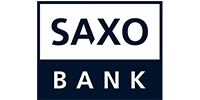
SAXO BANK
Saxo Bank is a well-established, low-risk broker based in Denmark that offers a wide range of trading services to sophisticated traders, institutions, and professional investors. It operates under strict regulatory oversight, ensuring a secure trading environment. The broker provides advanced trading platforms, including SaxoTraderPRO and SaxoTraderGO, catering to high-volume and professional traders with competitive spreads and access to over 71,000 instruments.
Why we chose Saxo Bank
For its comprehensive product range, spanning forex, commodities, indices, and popular CFDs. Such variety allows traders to build diversified portfolios within a single account. This breadth of markets supports evolving strategies and risk preferences.
| Broker Evaluation | 8.09 |
| Regulations | FCA |
| Minimum Deposit | $0 |
| Islamic Account | No |
| Payment Methods | Bank transfer, Credit Card |
| Main Branch | Copenhagen, Denmark |
| Customer Service | Market Opening Hours |
| Demo Account | Yes |
| Trading Platforms | SaxoTrader |
Pros
-
Extensive range of offerings.
-
Offers portfolio-based margin trading for pros.
-
Regulated by top regulators.
-
Excellent trading platforms.
-
Diverse account types.
-
Among the industry’s best research tools.
-
Offers protection for client accounts.
-
No inactivity fee.
-
No platform fees.
-
No minimum funding for entry-level accounts.
Cons
-
Some bonds, options, and futures fees are high.
-
With so many assets, fees can be confusing.
-
High minimum deposit for Platinum and VIP accounts.
-
Does not accept US clients.
-
No MT4 for traders who are used to the platform.
-
No GSLO.
-
No Islamic accounts.

CMC MARKETS
CMC Markets is a global CFD and FOREX broker established in 1989. It is regulated by several authorities globally. The company delivers a formidable offering for traders thanks to excellent pricing, nearly 12,000 tradable instruments, and its proprietary Next Generation trading platform. The platform comes packed with quality research, innovative trading tools, and powerful charting. CMC provides traders with access to an extensive range of CFDs and spread betting across several asset classes.
Why we chose CMC Markets
This broker’s risk management tools and flexible order types stood out to us, enabling traders to tailor positions according to market conditions. Features like stop losses, take profits, and conditional orders provide strategic control. These tools are essential for disciplined trading.
| Broker Evaluation | 8.07 |
| Regulations | FCA |
| Minimum Deposit | 0$ |
| Islamic Account | No |
| Payment Methods | Bank transfer, Credit Card, Electronic Banks |
| Main Branch | United Kingdom |
| Customer Service | Market Opening Hours |
| Demo Account | Yes |
| Trading Platforms | Proprietary Platform, MT4, Web Platform |
Pros
-
Extensive range of offerings.
-
Regulated by the FCA (UK) and other top regulators.
-
Low FOREX fees.
-
Emphasis on education and customer service.
-
Great Web and mobile platforms.
-
Offers protection for client accounts.
-
Research amenities are industry leading.
Cons
-
Does not accept US clients.
-
High CFD spreads for certain indices.
-
It only offers CFD trading, so traders cannot own the underlying asset.
-
Does not support deposits and withdrawals through electronic payments.

think markets
ThinkMarkets is a multi-regulated broker with offices around the globe. The firm is primarily a CFD broker, allowing you to trade across 4,000 instruments in FOREX, futures, commodities, indices, ETFs, crypto, and stocks. With an emphasis on superior customer service, ThinkMarkets maintains round-the-clock support in several languages. It provides different trading accounts suited to individual traders' needs. This includes zero-commission accounts and access to trading guides, analysis tools, and industry news feeds.
Why we chose ThinkMarkets
We selected this broker for its fast and flexible funding options, including bank transfers and card payments. Smooth deposits and withdrawals reduce administrative delays and support efficient capital management. Accessibility of funds is an often-overlooked but essential feature.
| Broker Evaluation | 8.05 |
| Regulations | FCA |
| Minimum Deposit | $0 |
| Islamic Account | Yes |
| Payment Methods | Bank transfer - credit card - Electronic Banks - Crypto |
| Main Branch | Australia |
| Customer Service | Market Opening Hours |
| Demo Account | Yes |
| Trading Platforms | Proprietary Platform, Web Platform, MT4, MT5 |
Pros
-
Beginner assistance is offered through round-the-clock channels.
-
Spreads are as low as 0.0 pips.
-
Round-the-clock expert customer service.
-
CFD shares and indices come at no extra fee.
-
Zero broker fees for FOREX trading.
-
Technical analysis and quality market information.
Cons
-
No binary options are offered.
-
Commissions are charged for two account types.
-
Range of tradeable assets is not as wide as some competitors.
-
No US clients allowed.
There is a high degree of risk involved in trading securities like FOREX, or CFDs, which are highly complex instruments. As a trader, you could be exposed to excessive leverage, questionable broker tactics, market volatility, and limited regulatory protection. Despite your best trading techniques and risk management strategies, your efforts may not be profitable, and you could suffer losses.
What is FOREX and Why Do We Need a Broker to Trade?
For every FOREX trader, it is good to know that the FOREX market is the largest financial market in the world with some six trillion dollars’ worth of deals taking place daily. In this decentralized market, currencies are bought and sold electronically over the counter (OTC). The FOREX market operates 24 hours a day, five days a week, excluding international holidays. This article will help you understand the implications of round-the-clock trading for market participants. Explore the pivotal role of FOREX brokers in the UK, facilitating clients' participation through trading platforms. The best brokers have accessible trading platforms that are accessible in both web and mobile formats.
How Do I Choose the Best FOREX Broker in the UK?
The best retail broker is the one that fits your trading style and goals. Check how much they charge in spreads and commissions, and make sure they’re licensed by a top-tier regulator. Look for fast execution and platforms that are easy to use on mobile. Above all, test their customer support before funding your account.
Owing to its excellent regulations, mature investing culture, and high levels of personal disposable income, the UK is home to an extensive range of brokers. In fact, many of the world’s most successful FOREX brokers cut their teeth in this market in the late 1990s.
Regardless of where they are based, you must first be satisfied that your FOREX broker is well-established and reliable. The best FOREX brokers are regulated by tier-1 regulators who will enforce stringent rules to ensure the safety of investor funds. Thereafter, you must assess the broker on important aspects, like how long they have successfully been in business, how well-managed they are, and the strength of their platforms and service offerings.
Concerning features, a broker must demonstrate that it has a robust trading platform, extensive access to markets, and rapid order execution. A good broker will normally tout its level of liquidity and the number of blue-chip financial partners with which it works. It’s important to check if your broker has a good customer service desk with client-friendly hours. Another important factor is to verify how easily you can transact with the broker in terms of deposits and withdrawals.
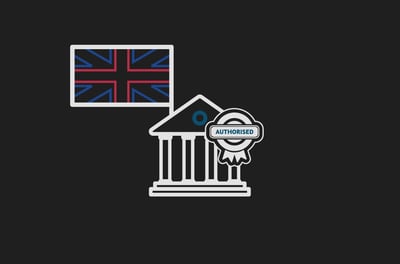
Regulation and Licensing in the UK
FOREX trading is entirely legal in the UK. Firms must be registered with the UK Companies House. Traders can check their broker’s registration details and information about the company directors on the Companies House’s Website.
UK FOREX brokers must be authorized and regulated by the FCA. This is a strong indicator that they are a safe bet for clients. As a member of the FCA, firms must offer investor fund protection to the tune of £85,000 through the Financial Services Compensation Scheme (FSCS). These rules also mandate negative-balance protection for traders and ensure that only suitably qualified people can run FOREX firms.
FOREX brokers also must keep client funds segregated from operating funds. Firms are also encouraged to be compliant with the European Markets in Financial Instruments Directive (MiFID), as well as MIFID II. This legislation is designed to increase transparency in financial markets through standardized regulatory disclosures.
The FCA is rightly considered as one of the best regulators around. Therefore, UK traders can rest easy knowing they are well-protected. If UK traders go in search of brokers in other jurisdictions – perhaps they are looking for higher leverage than is allowed in their home country – they should be careful to engage with brokers covered by fellow tier-1 regulators, such as the Cyprus Securities and Exchange Commission (CySEC). Even so, if this is not possible, as long as your broker is regulated by the appointed regulator in its jurisdiction, that is a good start.
While the FCA is the pre-eminent regulator in the UK, there are other major regulators around the world. If you want to read more about some of the best-regarded regulators, read our article on regulation here. When a broker is under the watch of a regulator, it undergoes stringent assessments to ensure transparency and fair trading practices. Opting for an unregulated broker brings with it significant risks.
Choose a broker under the watch of a trusted regulatory authority who is renowned for their rigorous oversight. There's no obligation to opt for an overseas regulator; reputable brokers also operate within your own jurisdiction. To confirm if your broker is registered with a regulator, navigate to the regulator’s official website.
Leverage
Depending on the regulator under which your broker works, you will encounter different policies relative to leverage. Key regulators have implemented specific rules to limit the leverage offered to retail traders as a means of consumer protection.
Here are selected leverage rules according to some key regulators:
FCA, UK:
30:1 for major currency pairs
20:1 for non-major currency pairs, gold and major indices
10:1 for commodities (excluding gold) and non-major equity indices
5:1 for individual equities and other reference values
2:1 for cryptocurrencies
These limits are in place to reduce the risk of significant losses for retail traders.
Swiss Financial Market Supervisory Authority (FINMA), Switzerland:
FINMA has not set specific leverage limits. However, Swiss brokers must adhere to rigorous capital and risk management requirements, ensuring they don't offer excessively high leverage that could endanger their solvency or their clients' funds.
Australian Securities and Investments Commission (ASIC) Australia:
30:1 for major currency pairs
20:1 for non-major currency pairs, gold and major stock market indices
10:1 for commodities other than gold and minor stock market indices
5:1 for equities (stocks) and other underlying assets
2:1 for cryptocurrencies
It's worth mentioning that these rules mainly target regular individual clients. If you're a professional trader, your access to leverage might vary depending on both the rules in place and the policies of your broker. As you can tell, diligent regulators keep a close eye on how much leverage is allowed. Nevertheless, you can still use a regulator from your own country, even if it doesn't fall under the category of a top-tier regulator.
Retail traders should be cautious when trading with high leverage due to the significant risks involved. While leverage can increase gains, it can also magnify losses. You should be careful when trading with high leverage, that’s why you need the right knowledge and experience to handle the highs and lows that come with this form of trading.
Stop Out and Margin
As a FOREX trader, it's crucial to understand the most important terms you'll encounter to avoid going into a negative balance. One of these terms is "stop out," which refers to a situation where a broker automatically closes some or all of your open positions to prevent your account from going into a negative balance.
This is especially relevant for traders using leverage. The stop-out level is typically expressed as a percentage, representing the margin level at which the broker starts to close out open trades. Stop outs are bad news. It means something has gone awry with your planning. We will explain what we mean.
Here are the three most common stop-out levels:
0% Stop-Out Level:
At this level, when the margin level of the account drops to 0%, the broker will automatically close all open positions. This is the most aggressive stop-out level, and it gives no room for your positions to recover, even if the market turns in your favor immediately after reaching this level.
Here's how it works:
Imagine you have a trading account with a balance of £1,000, and you've opened several positions in the market. Your broker has a 0% Stop-Out Level policy, which means that if your margin level drops to 0%, the broker will automatically close all your open positions to prevent further losses.
You start with a £1,000 trading account balance
Using 30:1 leverage, you can control £30,000 worth of currency with your £1,000 account
You open a position in GBP/USD with a notional value of £30,000, and the margin required for this trade is £1,000 (3.33% of the notional value)
The market moves against your position, causing your account balance to drop to £900
If your losses accumulate, your account balance decreases and your margin level (account equity divided by used margin) drops accordingly
When it reaches 0%, the broker's 0% Stop-Out Level policy comes into play
50% Stop-Out Level:
Here, if the margin level drops to 50%, the broker will start closing out positions. It offers a bit more flexibility compared to the 0% level. The broker will typically close the most unprofitable positions first, and if that's not enough to bring the margin level back above 50%, more positions will be closed until it's achieved.
100% Stop-Out Level:
A 100% stop-out level means that when a trader's equity equals the margin required for the open positions, the broker will start closing those positions. It's important to know that this is similar to the 0% level, but might be worded differently, based on broker terminology.
Keep in mind that the specific percentage and the order in which positions get closed can vary from broker to broker. So, traders must know their broker's stop-out policy. It's worth noting that while stop-out measures are designed to shield traders from going into the red, they can also result in substantial losses, especially in volatile markets where positions are swiftly closed automatically, especially if the market suddenly reverses post-stop out. That's why you should always employ protective strategies, like setting stop-loss orders and avoiding excessive leverage.
Commissions and Fees
Trading fees can sometimes be difficult to track. Be sure to check how these fees compare with industry standards:
Spreads: There are two main kinds of spread, one is fixed and the other is variable. Generally, the spread refers to the difference or gap between two prices, such as the bid/ask rate in a currency exchange rate. An example of a good spread is 1.4 pips for the EUR/USD (the narrower the better, this means that a spread of 1.4 pips is better than a spread of 2 pips). This article explains more about this important concept.Commission: This is nothing more than the service charge that brokers require for carrying out transactions on behalf of their clients.
Rollover fees: When you leave a trade open overnight, the broker normally charges a rollover fee for the facility of holding your trade open for that period. This is because they assume the risk of the market changing adversely.
Withdrawal and Deposit Fees: Some platforms might charge fees for depositing or withdrawing funds. Pay attention to this. It's important to be aware of these and any associated limits or conditions.
Subscription or Inactivity Fees: Certain platforms have monthly charges or fees for inactive accounts. Ensure you're aware of these potential costs.
To assess trading costs accurately, the Arincen research team examined broker pricing across multiple sources, combining published fee schedules with observed trading conditions. Our analysis focuses on spreads, commissions, and additional charges that impact traders in practice. You can see the consolidated findings in the table that follows.







| Spread | Commission | Swap | Islamic Account | |
| Currencies | Starting from 1.3 Pips | 0$ | No | Available |
| Stocks | Starting from 18 Pips | 0$ | Yes | Unavailable |
| Commodities | Starting from 2.3 Pips | 0$ | No | Available |
| Indices | Starting from 4 Pips | 0$ | Yes | Unavailable |
Tradable Assets and Instruments
Online trading offers a wide range of financial instruments, each with its own opportunities and challenges. Here are some of the most common:
FOREX: This is why you are reading this article. This type of trading involves buying and selling currencies from different countries on the foreign exchange market with the goal of making a profit. This is done through a broker with an online platform, like MT4 or MT5. FOREX brokers provide tools to traders for executing buy and sell orders in the currency markets.
CFDs: CFDs allow traders to speculate on the future market movements of an underlying asset without actually owning or taking delivery of the asset. CFDs are traded on margin, meaning the broker allows investors to borrow money to increase leverage or the size of the position to amplify gains.
Equities or stocks: These represent ownership in a company, and trading them involves buying and selling shares of publicly traded companies.
Commodities: Items of value such as gold, oil, wheat and coffee can be traded through a broker or online trading platform.
Indices: These are a measure of the performance of a group of stocks or other assets. Trading indices involves buying and selling a basket of stocks or other assets that make up the index. Some key indices include the UK 250 and the Germany 40.
Bonds: These are debt securities issued by companies or governments to raise capital. When you buy a bond, you are essentially lending money to the issuer, who promises to pay you back with interest later.
Options: Options are contracts that give the buyer the right, but not the obligation, to buy or sell an underlying asset at a predetermined price and time.
Futures: These types of contracts obligate the buyer to purchase an underlying asset at a predetermined price and time in the future. This is done through a broker or online trading platform.
As part of our evaluation process, the Arincen team gathered and cross-checked broker pricing from official documentation and live trading environments. This approach allowed us to compare spreads, commissions, and fees under actual market conditions. The breakdown of our findings is presented in the table that follows.
| Brokers | Currency pairs | Stocks | Indices | Commodities | Crypto | ETFs |
| Tradview | 80 Pairs | 5000 Shares | 10 Indices | 10 Commodity | 30 Coins | Unavailable |
| ICM Capital | 67 Pairs | 89 Shares | 17 Indices | 12 Commodity | 6 Coins | Unavailable |
| XTB | 57 Pairs | 1848 Shares | 36 Indices | 22 Commodity | 22 Coins | 135 ETFs |
| IG | 81 Pairs | 21714 Shares | 49 Indices | 39 Commodity | 11 Coins | 12858 ETFs |
| Saxo Bank | 320 Pairs | 22000 Shares | 49 Indices | 39 Commodity | 9 Coins | 6700 ETFs |
| CMC Markets | 330 Pairs | 8000 Shares | 80 Indices | 100 Commodity | 18 Coins | 200 ETFs |
| Think Markets | 46 Pairs | 3750 Shares | 15 Indices | 11 Commodity | 21 Coins | 350 ETFs |
Payments, Deposits, and Withdrawals in the UK
It is best to find a broker with several ways to fund your account. The broker should be able to support traditional bank transfers, as well as debit and credit cards and electronic wallets. Processing times should be kept as low as possible. Traders should be aware that payments must originate from an account in their name. Cash deposits are not normally accepted. The well-developed UK banking industry can support major payment methods by local brokers.
Our pricing review draws on Arincen’s independent research, where we analysed broker cost structures using both advertized rates and real-world trading data. By comparing spreads, commissions, and related fees, we aimed to reflect what traders are likely to experience. The outcome of this assessment is displayed in the table below.







| Method | Credit Card | Wire Transfer | Skrill | Neteller | Cryptocurrency | PayPal |
| Deposit fee | 0$ | $0 + Bank commission | 1.9% | 2.5% | Unavailable | 3.75% |
| Withdrawal fee | 0$ | $15 | 1% | $0 | Unavailable | 2% |
FOREX Trading Customer Service
- Quick resolution of issues
- Educational support
- Assistance with queries during volatile markets
- Account security
- Customized advice (although not all customer service desks offer this)
- Technical assistance
- Regulatory compliance queries
Based on in-house analysis by the Arincen team, we reviewed pricing data from both official broker websites and live market conditions. This included spreads, commissions, and trading fees observed in real use. The results of that comparison are summarized in the table below.







| Live Chat | Phone | |||
| Available | Available | Available | Available | Available |
| Quick response | Quick response | Fast | Fast | Fast |
Technical Aspects of the Broker’s Website
When it comes to sharing sensitive personal information online, such as a credit card number, cyber security is paramount. You should, therefore, always look out for SSL certification and two-factor authentication (especially when registering with a new site). Be sure to use a safe password.
Trading Platforms, Tools, and Features
FOREX brokers in the UK offer the same set of tools you can find in any developed market. The best brokers offer advanced algorithmic trading that can support large volumes of trades with high uptime and little lag. Brokers can also offer electronic assistance (EA) and high-end market analysis and insights.
When picking a trading platform, it's crucial to consider what works for both beginners and experienced traders. Here are some things to consider:
Customization and User-Friendliness: You should be able to tweak the platform to match your style. Within the MetaTrader product family, both MT4 and MT5 are known for their excellent customization features. Here’s a comparison between the two.
Platform Accessibility: Whether it's web-based or downloadable, a good platform should give you options to trade at your convenience, any time, on any device.
Technical Analysis Tools: Look for a platform that has solid technical indicators. They are useful for making smart trading decisions.Risk Management Tools: Trading is risky. A top-notch platform should allow you to set stop-losses and take-profits to manage those risks.
Performance and Reliability: As a newcomer, you should be looking for a platform that runs smoothly when called upon.
Learning and Help Resources: It's a boost if the platform is not only visually pleasing and customizable, but also comes with guides and support to help you when you're stuck.
To choose the perfect trading platform, here's what you can do:
Determine your trading style and needs.
Research different platforms and compare their features.
Test the platforms with a demo account to see which one suits you best.
Choose a platform that offers the features you need and is user-friendly.
Ensure that the platform is reliable and has a good reputation in the industry.
Remember that the trading platform you choose can have a significant impact on your trading success, so it's important to choose wisely.
Ask Other Traders on Our Network
Arincen’s Website features a powerful social network where traders can learn from each other in a supportive community. Every trader starts out as a novice, and it helps to be able to watch and study the trades of other, more experienced investors. This important feature has allowed many traders to make their learning curve less steep and expensive.
Tip for those who have no experience
We believe that a solid foundation in education and research is essential for every successful trader. That’s why we’ve created a set of resources specifically for you. Our comprehensive articles provide an understanding of the basics, while our videos offer insights from industry insiders. Stay updated with the latest developments in the market through our newsfeed, signals, and detailed analytics.
FOREX Trading Scams and How to Avoid Them
The anatomy of a FOREX trading scam involves criminals creating a clone FOREX broker website with basic functionality to dupe novice investors into thinking they are trading with a legitimate entity. These novice investors are lured to these websites on the promise of quick wins and handsome profits.Traders may start “making money,” which is nothing more than a confirmation within the website that the traders have been successful in selected trades. When they try to withdraw their funds, they normally run into trouble, with nominated contacts becoming hard to reach and the website announcing that it is experiencing technical trouble.The above example is a classic instance of one of the early trading scams. Over time, criminals have become more sophisticated and daring, not to mention that many scams are perpetrated by insiders working at FOREX brokers, often it is the owners themselves!The best way to avoid being scammed is to check that the broker you are using is regulated by a trustworthy regulator. Any broker regulated by the FCA has had to undergo the most stringent vetting of their operations anywhere in the world.
Trading with an unregulated broker can have dire consequences. Regulated brokers must comply with strict rules to protect your interests. Unregulated brokers may engage in fraudulent activities, such as misappropriating client funds, and may not have adequate measures in place to protect your data. For a list of the best regulators, read our article here.
Will Your Money Be Protected if Your Broker Becomes Insolvent?
The Dos and Don’ts of FOREX Brokers
- The FOREX brokerage firm cannot recommend a buy or sell;
- The FOREX brokerage firm must not provide price or market expectations (rise/fall);
- The FOREX firm cannot control your financial dealings (deposit/withdrawal);
- The FOREX brokerage firm should not “manage” your portfolio under any circumstance;
- The FOREX brokerage firm cannot grant a client a bonus unless there are clear terms guiding it beforehand.
- The brokerage firm must not use bank accounts not under its name; and
- FOREX brokerage firms cannot have or offer the service of account managers.
Which FOREX Broker Has the Best Platform?
Which is the Best FOREX Broker for Lowest Fees and Spreads?
After conducting thorough research, we can say with confidence that ICM’s ECN account offers the best low fees and spreads for any kind of trader.
Which is the Best FOREX Broker for the Most CFDs?
Which FOREX Broker Offers the Most Assets?
Which FOREX Broker is Best for Professionals?
Recommended Brokers
What Is Arincen and What Do We Do?
Arincen’s Review Methodology
The team at Arincen collected more than 120 pieces of data covering more than 100 licensed FOREX brokers. Data collection was done in three ways:
Companies’ websites.
Other websites that have ranked FOREX companies.
A survey questionnaire (referred to here as Survey “1”) was sent to the companies invited to participate in the exercise. We have identified 13 criteria for our assessment, each containing several aspects and carrying its relative weight. These include licensing, deposits and withdrawals, number of assets, etc.
Afterwards, we validated the data by:
Registering with FOREX companies as a secret shopper and/or as Arincen.
Survey number “2,” in which we asked these companies’ customers for important feedback and experience.
The next step saw us evaluate and rank each company, relying on the hard work of 15 Arincen employees. We were very careful in ensuring the most accurate assessment possible, including considering different languages, as well as the various mobile-app operating systems, e.g., Apple, Samsung, etc.
To add credibility to our research project, we sent a final and third survey (referred to here as Survey “3”) to enable participating FOREX companies to evaluate our research and whether it accurately reflects the realities on the ground. We were fortunate enough to receive a mark of 9.9 out of 10! We have kept to a minimum the margin of error, which stood at a measly 1%. To learn more about how we came up with the evaluation, please click here.
Conclusion
Forex Risk Disclaimer
Trading foreign exchange on margin carries a high level of risk, and may not be suitable for all investors. The high degree of leverage can work against you as well as for you. Before deciding to trade foreign exchange you should carefully consider your investment objectives, level of experience, and risk appetite. The possibility exists that you could sustain a loss of some or all of your initial investment and therefore you should not invest money that you cannot afford to lose. You should be aware of all the risks associated with foreign exchange trading, and seek advice from an independent financial advisor if you have any doubts.
FAQ
Yes, FOREX trading is completely legal in the UK.
The FOREX market is the largest financial market in the world. It operates 24 hours a day and five days a week (Monday through Friday), except international holidays.
FOREX trading is the largest and most liquid market in the world. It involves traders buying and selling the underlying fiat currencies of different countries, and trading these for other currencies for a profit. FOREX can also be traded on a CFD method, where traders do not own the underlying currencies.
One of the most important costs associated with FOREX trading is known as the spread between the bid (sell) price and the ask (buy) price of a currency pair. The broker names the spread, which is made up of a market-driven difference in value between two currencies, marked up with a profit for the broker. Another important fee is the commission, which is a percentage fee that a broker takes off every trade. Commissions per trade are tiny, but they can add up if a trader works with large volumes.
As timing is key to FOREX trading, you must pick a brokerage firm that is able to provide good customer support around the clock. This most notably includes the company representatives being easy to reach, fast and polite, which will, in turn, spare you of having to worry about problems down the road.
Yes, FOREX trading is taxable in the UK. In the main, you will be taxed on profits from FOREX trading, even though there are certain conditions under which you will not pay tax. This relates to when you trade low volumes as an amateur speculator. However, once your trading volume passes a certain threshold, or your earnings begin to make up a certain quantum of your overall earnings, you will start to pay capital gains tax. You are advised to consult a tax professional to understand your liability more clearly.

